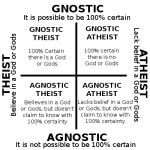hart's shirt
Well-known member
I agree, which I why I would also be very criticial of sending a child to a faith school, the education is clearly going to have bias.
In a non-faith school, there could equally be as much bias from those who don't believe as much as those do.
Of course, one can study something without having to believe it. Thus a child in a faith school can learn about all other religions and none.
For the record, I'm not a big fan of faith schools, regardless of whichever faith it is. Decisions on sending children there are often made primarily on religious grounds rather than educational ones.
Should parents have the right to send their kids to one? Of course. Is it going to be the best thing for the child? Often not if it's a poor-performing school.


